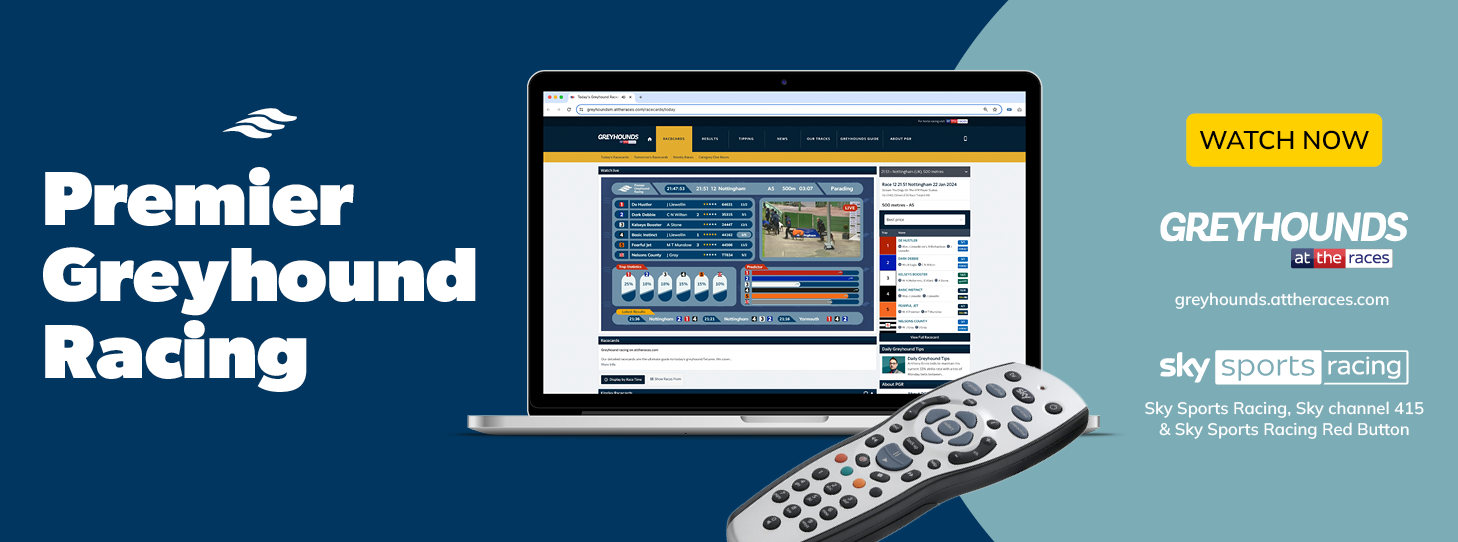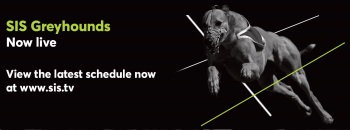Dr Simon Gower, the Veterinary Director of the GBGB, has reiterated a directive for vets, tracks and trainers in the Board’s drive to eliminate euthanasia on economic grounds. The directive (printed below), which was carried in the latest calendar, outlines the responsibilities of those involved in the welfare of greyhounds when injury occurs.
“This is nothing new but a reminder that vets, tracks and trainers need to be prepared for dealing with an emergency which cannot be stabilised at the track or be dealt with using basic first-aid at the kennels,” he said.
He continued: “The industry does need to address the issue of economic euthanasia and the GBGB Injury Recovery Scheme, which was launched in October at the Track Vet Training Day, offers owners and trainers financial assistance as an incentive to consider treating a dog injured in a race when, perhaps, euthanasia may appear to be an ‘easier’ or cheaper option.”
It is understood that, under the Royal College of Veterinary Surgeons’ Code of Conduct, it is a requirement that all practising veterinary surgeons make adequate provision for emergency 24-hour care for their patients and that vets must adhere to this as a duty of care.
Dr Gower went on to say: “Establishing a good relationship with a veterinary practice local to the track would meet this obligation and provide the necessary back up so, when an emergency does occur, there is a quick and easy route to refer an injured greyhound. Track Welfare Officers will also hold the necessary information in case the Principal Veterinarian is being covered by their staff.”
Dr Gower was also keen to remind trainers that, as an obligation, under the Animal Welfare Act and the Rules of Racing that they are duty bound to be registered with a veterinary practice within a reasonable distance from their residential kennels to cater for emergencies that occur at home.
“As part of the GBGB Commitment to greyhound welfare, we must all ensure the health and welfare of greyhounds in our care. We also need to guarantee that every greyhound gets the correct treatment promptly, and that no injured greyhound that can be successfully treated and rehomed is ever put to sleep,” Dr Gower concluded.
Early indications are that there has been a positive response to the Injury Recovery Scheme and the hope is that this will reflect with a decline in economic euthanasia figures within the industry. It has yet to be announced when the GBGB will be releasing the next set of injury and euthanasia statistics.
The directive in full below;
Veterinary attendance at licensed race tracks is for the provision of immediate First-Aid treatment for greyhounds that sustain an injury while racing, as well as attending to the Duties of a Track Vet required at all race meetings.
The track veterinarian will provide pain relief and immediate First-Aid to an injured greyhound and ensure that any casualty is transported without unnecessary delay to a trainer’s regular veterinary surgeon or a local practice for further assessment/treatment.
The track veterinarian will issue a “First Aid Treatment, Written Direction and Transport Certificate” which will provide a provisional diagnosis of the nature of the injury, details of treatment given at the time of injury and instruction on the requirement for follow-up treatment within a specified timeframe.
This Certificate is a requirement for effective communication between veterinary professionals (as specified in the RCVS Guidelines) to facilitate handover of the patient, to ensure continuity of care and to safeguard the welfare of the injured greyhound.
Licensed trainers are reminded that they must be registered with a veterinary practice within a reasonable distance from their kennels for routine veterinary cover of greyhounds in their care and the provision of emergency out-of-hours services. It is not acceptable to transport emergency cases for treatment by the track veterinarian during race meetings. This often involves transport for longer distances and the veterinary facility at the race track may not be equipped to adequately provide for surgical cases requiring advanced emergency care. The movement of a sick greyhound to a racecourse is likely to cause unnecessary stress to the patient and constitutes a health risk to other dogs at the track. Dogs that are sick and require medical treatment should be taken to a veterinary surgery as close as possible to the trainer’s kennel without delay. It is the trainer’s responsibility to arrange for these cases to be seen without delay by a local practice.
Further, the track veterinarian is responsible for the welfare of all dogs at a race meeting and their primary focus is to attend to this duty. Dogs not racing or trialling at that meeting may not be brought to the race track unless for marking-up/registration.
Veterinary surgeons providing cover for race meetings are also reminded that they shall make arrangements with a practice local to the track to provide emergency back-up for referral of any greyhound that requires immediate advanced care and hospitalisation. Contact details for this emergency practice will be displayed in the vet’s room and also notified to the track management/Welfare Officer.












